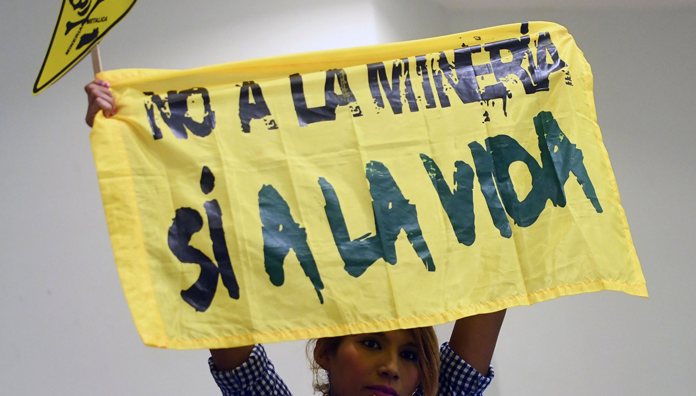
Protests in El Salvador Over Metallic Mining Law
by María Josefina Arce
Controversy persists in El Salvador over the Metallic Mining Law, approved last December by the Legislative Assembly, which gives the green light to this extractive activity that has been banned in the Central American country since 2017, after years of historic struggle by different sectors of society.
In recent days, a new protest was held in the capital, San Salvador, called by the youth against the government's plans to activate this industry.
"YES to life, no to death" was one of the slogans heard at the rally in front of the National Library, in the heart of the Salvadoran capital.
This is the third protest by Salvadorans in front of this institution, in addition to other actions that have taken place since the law proposed by President Nayib Bukele was approved by the legislative body dominated by his party, Nuevas Ideas.
In recent days, for example, bells have been rung in churches across the country as part of a national day of fasting and prayer against the reactivation of metal mining.
According to a survey by the Jesuit Central American University, more than 59% of Salvadorans oppose this extractive activity.
In fact, at the end of last month, social organizations filed a complaint of unconstitutionality against the controversial law before the Constitutional Chamber of the Supreme Court of Justice, claiming that the proper procedures were not followed before its approval.
Environmentalists have warned of the risk of contamination of the Lempa River, which crosses the area of potential mining and supplies water to 70% of the population of San Salvador and other nearby towns.
Experts have pointed out that contamination from mining is serious and can affect both the environment and life in general.
The health impacts are severe, as this activity exposes people to toxic substances produced by heavy metals, contaminates water and air, and increases the risk of contracting infectious and respiratory diseases, among other serious effects.
A large part of the citizens have expressed their intention to continue their actions against the Metallic Mining Law, which they point out was approved without public or technical discussion and will hand the country over to the transnationals.

